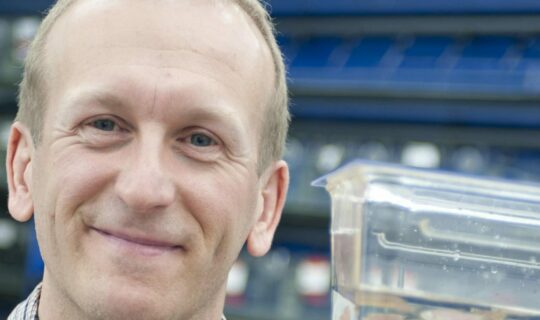
Associate Professor Gilbert Weidinger
University of Ulm, Germany
- 18:00
- Online, https://monash.zoom.us/j/86857749030?pwd=MCtKcGVhNVQyd3BYZnAxUFh2WXBRdz09
- A/Prof Jan Kaslin
Zebrafish fin regeneration requires generic and regeneration-specific responses of osteoblasts to trauma
Abstract
Successful regeneration requires the coordinated execution of multiple cellular responses to injury. We are interested in studying how different injury responses occurring in the same cell are interrelated. In particular, we wonder whether they are consequences of a program that is triggered by injury or whether they are independently regulated processes that can be uncoupled. In injured zebrafish fins, mature osteoblasts dedifferentiate, migrate towards the injury and form proliferative osteogenic progenitor cells. Surprisingly, we found that osteoblast dedifferentiation and migration can be uncoupled since they are regulated by different signals. In addition, dedifferentiation and migration occur also in response to injuries that do not trigger bone regeneration. We suggest that osteoblast dedifferentiation and migration represent generic injury responses that can occur independently of each other and of regenerative growth. Successful bone regeneration appears to require the coordinated execution of generic and regeneration-specific responses of osteoblasts to trauma.
Bio
Gilbert Weidinger studied Biology in Salzburg, Austria, performed his PhD in the lab of Erez Raz at the University of Freiburg, Germany, and the Max-Planck-Institute for Biophysical Chemistry in Göttingen, Germany, and did postdoctoral research in the lab of Randall Moon at the University of Washington, Seattle, USA. In 2006, Gilbert Weidinger established his own group at the Biotechnology Center of the University of Dresden, Germany, and since 2012 he is Associate Professor at the University of Ulm, Germany.The focus of his lab is to shed light on the astounding regenerative abilities of adult zebrafish. His lab has found that plasticity of differentiated cells is an important mechanism underlying bone regeneration, has uncovered essential roles for Wnt, Notch, BMP and NF-kappaB signaling in the regulation of fin and heart regeneration, and has identified novel components of the Wnt signaling network.
www.uni-ulm.de/weidinger
